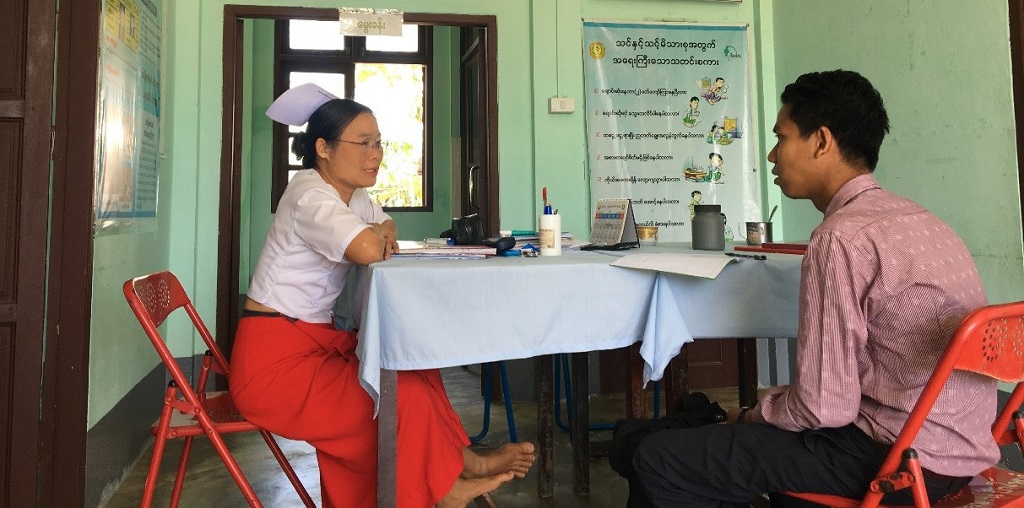This content also appeared on JSI’s website.
Kayin State, Burma – In this region of Burma, a midwife’s leadership is essential. A single health center often supports multiple villages and one midwife will supervise a large staff with a heavy workload. Such is the case for 40-year-old midwife Naw Kamar Phaw, who oversees four villages while also supervising three integrated community malaria volunteers (ICMVs).
This “small but mighty” sub-rural health center staff is stationed at Phar Chaung outside of Mywaddy Township, but their reach is felt far beyond. With the National Malaria Control Program and support from MCSP, the newly trained ICMVs working closely with the health center are on the frontlines of patient identification and treatment follow-up for tuberculosis (TB).
Due to the limited human resources in the area, there are no Direct Observed Treatment Providers (DOTPs) that can cover each and every village. However, the newly trained ICMVs have been able to take up many of the DOTPs tasks, especially in suspected patient identification and follow-up, which are critical in the fight to manage Burma’s communicable diseases.
Cases of malaria in Burma have significantly declined since 2010, when the National Malaria Control Program began training and deploying more than 40,000 malaria volunteers to conduct community-based malaria case detection, and to treat and refer severe cases of the disease. Recognizing this well-trained and highly effective cadre of frontline health workers as a valuable national resource, the Ministry of Health and Sports and MCSP developed a new strategy in 2017 to expand the role of malaria volunteers to address five additional communicable diseases: TB, HIV, dengue hemorrhagic fever, filariasis, and leprosy. As a result, the title of “malaria volunteer” was changed to “integrated community malaria volunteer (ICMV).”
“I have personally witnessed the benefits of ICMVs in my villages,” Phaw said, “and I have noticed improvements in patient referrals, as well as an increase in disease detection.” Thanks to ICMV referrals, Phaw received three additional suspected TB patients.
The ICMVs also see the value of their expanded role in spreading accurate health messages and efficiently linking communities with higher-level health services, when needed. While distributing and promoting the use of long-lasting insecticidal bed nets, for example, they now extend their discussions beyond malaria prevention to other vector borne diseases. Their trusted role in the community has become a lifesaving link between households and government health services.
“I hope there will be additional ICMV trainings in the future that continue to improve coordination between basic health staff and ICMVs, creating even stronger linkages in patient referral, treatment, and patient follow-up,” Phaw said. She would like similar trainings to be provided to basic health staff, as well, including supervision training given their role overseeing the ICMVs in their respective communities.
For now, Phaw knows her efforts and those of her team are a key part of creating a stronger health system for Burma. Such a system requires robust linkages between community volunteers and health staff. By expanding the role of 74 ICMVs – and developing 60 master trainers – MCSP is helping Burma to leverage its own human resources to address the country’s most pressing health challenges.
These trained volunteers have proved capable of taking on the tasks of DOTPs, handling more complicated disease management with supervision from Phaw. And thanks to their earlier case detection and referrals, Phaw is seeing more patients.
The result? This linkage – from ICMVs to the community health center midwife and upwards to the hospital – is building health system capacity one trained volunteer and one diligent, dedicated midwife at a time.

